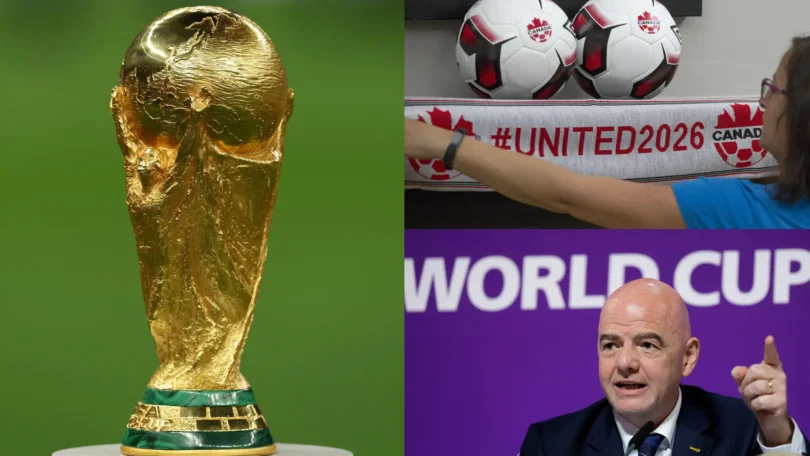In a historic decision, FIFA has officially announced Saudi Arabia as the host nation for the 2034 FIFA World Cup. This decision comes as the kingdom continues to assert itself as a global player in sports and entertainment. Meanwhile, the 2030 World Cup will be a unique event, spanning three continents, with Morocco, Spain, and Portugal serving as co-hosts. The announcements highlight FIFA’s growing focus on expanding the tournament’s global reach while embracing new markets and cultures.
Saudi Arabia’s Bold Move for 2034
The choice of Saudi Arabia as the 2034 host marks a significant milestone in the nation’s ambitious efforts to position itself as a global sports hub. The Saudi Arabian Football Federation submitted its bid shortly after FIFA set a deadline for Asian and Oceanian nations to express interest in hosting the tournament. The kingdom faced no direct competitors, paving the way for its selection.
Saudi Arabia’s bid is part of the country’s broader Vision 2030 initiative, a strategic framework aimed at diversifying its economy and reducing reliance on oil by investing in tourism, entertainment, and sports. Hosting the World Cup aligns with the kingdom’s multi-billion-dollar investment in global sporting events, including Formula 1 races, heavyweight boxing matches, and the controversial LIV Golf tour.
Crown Prince Mohammed bin Salman, the driving force behind Vision 2030, expressed his gratitude for FIFA’s trust in Saudi Arabia, calling it a “historic opportunity to showcase the country’s cultural heritage and hospitality to the world.” The event is expected to involve significant infrastructure projects, including state-of-the-art stadiums and transportation systems, as well as initiatives aimed at promoting sustainable development.
The Challenges and Opportunities
While Saudi Arabia’s selection reflects its rising influence on the global stage, it has not been without controversy. Critics argue that the country’s human rights record, particularly regarding women’s rights, press freedom, and LGBTQ+ issues, poses challenges for hosting an inclusive global event like the World Cup.
However, proponents of the decision highlight the potential for positive change. Hosting the World Cup could encourage further social and economic reforms, as seen in previous events held in countries like Russia and Qatar. FIFA President Gianni Infantino defended the choice, emphasizing the importance of bringing the World Cup to new regions and using football as a tool for unity and progress.
A Historic 2030 World Cup
FIFA also announced that the 2030 World Cup will be a groundbreaking tournament, with Morocco, Spain, and Portugal co-hosting the majority of matches. To celebrate the centennial of the inaugural World Cup, the opening games will be played in Uruguay, Argentina, and Paraguay, acknowledging the tournament’s South American roots.
This unique arrangement will mark the first time the World Cup spans three continents, reflecting FIFA’s commitment to inclusivity and global representation. Morocco’s inclusion as a co-host is particularly significant, as the North African nation has long aspired to host the tournament. Its successful bid, alongside Spain and Portugal, underscores the growing influence of African nations in global football.
Implications for Global Football
The back-to-back announcements for the 2030 and 2034 World Cups represent a shift in FIFA’s strategy to diversify football’s global footprint. By awarding hosting rights to countries in Africa, Europe, Asia, and Oceania, FIFA is fostering greater inclusivity and creating opportunities for nations outside traditional football strongholds to showcase their potential.
For fans, these decisions promise exciting cultural and geographic diversity. The 2030 World Cup will provide a blend of European, African, and South American atmospheres, while the 2034 tournament in Saudi Arabia will offer a unique Middle Eastern experience.
A Look Ahead
As preparations begin, all eyes will be on Saudi Arabia to deliver a tournament that lives up to FIFA’s high standards and global expectations. Similarly, Morocco, Spain, and Portugal face the challenge of coordinating a logistically complex event spanning three continents in 2030.
These World Cups are more than just sporting events; they are opportunities to promote cultural exchange, economic growth, and global unity. Whether these goals are fully realized remains to be seen, but one thing is certain: the next decade will be transformative for the beautiful game.







